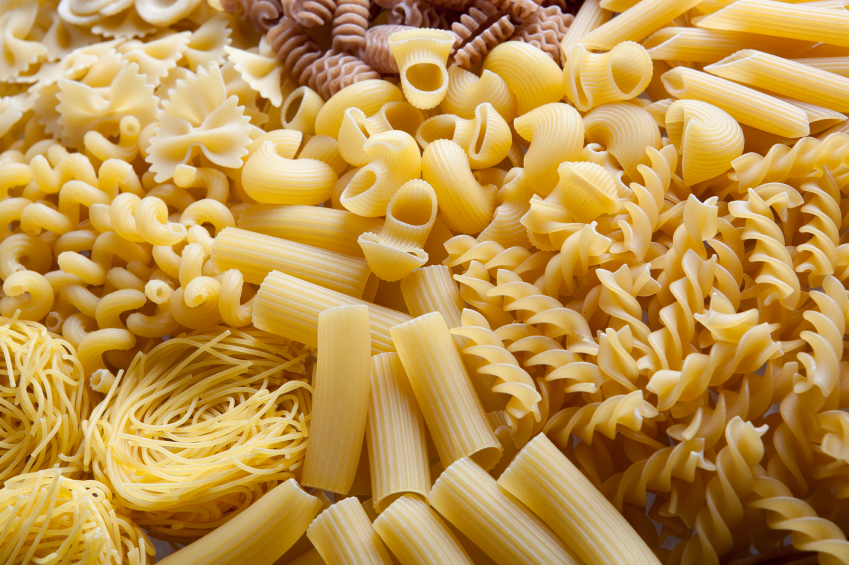Fat days be gone!
Ever look in the mirror and feel fat? David Goding discovers that you can say cest la vie to fat days.

You swear that button did up more easily yesterday. Last week there was more room between your butt cheek and jeans – never mind that they shrunk half a size in the wash. And in a few short hours your stomach has gone from flat to, well, fat. Forget that it’s that time of the month and you’re pooling more fluid than a Saharan camel. You’re having what’s known as a ‘fat day’. This perception-based panic happens to most of us, but you can change what you see in the mirror.
Fat or fiction?
If your ‘fat day’ is sparked by an unexpected scale reading, the good news is that an overnight increase is unlikely to show – to others, at least. Your body weight naturally fluctuates fractionally on a daily, often hourly, basis by as much as two to three kilograms due mostly to fluid shifts. “Normal fluctuations in the body’s water content can hugely influence body weight,” says Sophie Boss, author of anti-dieting guide Beyond Chocolate.
“Two factors that affect water retention are water consumption and salt intake. Bizarrely, the less you drink, the more your body will hang on to water supplies. Salt intake can also play a big role in water retention. Therefore, if you are dehydrated, or have eaten foods containing a lot of salt, you are likely to weigh more.”
Another factor that can influence body weight is your menstrual cycle. It is normal to weigh more just prior to menstruation than during the rest of your cycle.
So why do your jeans feel tighter? More fluid does take up more space – see ‘b’ for ‘bloat’ – so a tape measure may register extra centimetres, but it’s not actual body mass. And it’s not permanent.
The key to averting these panics is to know your menstrual cycle and how your body responds to certain food types, so you can dismiss such spikes and move on, rather than joining the throngs on internet diet forums using the keywords, ‘help, gained 3kg overnight’.
All in the mind
Often ‘fat days’ have nothing to do with the scales. It’s well documented that our minds are capable of distorting how we look in the mirror. In anorexia nervosa and body dysmorphia, for instance, sufferers may not see themselves as others do at all. For the rest of us, the same zany phenomenon can apply in a milder form.
What we see in the mirror often has less to do with our sense of sight than how we feel about ourselves. We’re looking with the mind’s eye. A host of elements can influence how we feel and view ourselves, including, it seems, what we eat. Research conducted by the Liverpool John Moores University and presented to the British Psychological Society found that people who fluctuate between eating high and low calorie meals on a day-to-day basis are more likely to feel dissatisfied with their body image. Cruelly, this can lead to real weight gain.
“We are not only what we eat but we are also what we think,” says Dr Rick Donald, author of Feast and Famine. “It is now beyond doubt that our own power of suggestion – our self-talk – can result in physiological change, be it for the better or for the worse.”
Combat the fat day
Banish the fat day! It can be empowering to realise that the greatest factor contributing to your fat day is your mind, and that you can change how you view yourself, and even how others view you, simply by changing your attitude.
Instead of giving your body a negative appraisal, tackle the real issue that is getting you down. Resolving these issues will help you move on with a lot more confidence in your mind as well as your body.
Try to logically dismiss thoughts of having a fat day – remind yourself that it’s not real. Hold your head up and give the mirror a proper smile – it’s surprising what a difference this can make.
Negative thoughts feed on stress and stress feeds on high calorie snacks so you need to have some way of de-stressing, whether it’s taking time out for meditating, yoga or a massage by your partner.
When meditating – or when simply taking a bit of time out – close your eyes and visualise yourself as attractive, strong and admired by your peers. The power of visualisation is regularly used by top class athletes to improve performance and should not be underestimated.
There is no better way of feeling good than pampering yourself, so take a long bath, have a facial, go to the movies or head out to dinner with your partner or friends.
Try to develop a consistent diet and exercise routine. Not only will this help to maintain your healthy weight and give you less weight fluctuations but, importantly, it will give you a positive feeling of consistency.
What to wear
At the start of a fat day it’s only natural to reach for loose-fitting, curve-hiding, fail-safe garments. But as much as you may think you are trying to feel better about yourself by doing this, you are essentially trying to camouflage your body and, in doing, actually reinforce negative feelings towards your body.
Instead, choose an outfit that says ‘I look great’. Bluff it and you’ll believe it, and if you believe it, so will everyone else. Choose slimming, dark colours if you must, but steer clear of tracky-dacks and baggy shirts – ultimately, they’ll only make you feel comfortable but depressed.
Lastly, try not to agonise in front of the mirror. Sounds too simple, but instead get out and just be yourself.
Fat weeks
Being slightly annoyed by the odd ‘fat day’ is one thing, but being devastated by fat days, or experiencing ‘fat weeks, months and years’, are different beasts that may point to body image disturbance and/or over-reliance on the bathroom scales.
Imbuing a number with the power to make or break your mood is a recipe for chronic turbulence – especially since you’re then unlikely to brush off inevitable fluctuations.
“Why let a little black number dictate your mood and self-esteem every day, especially when those numbers are meaningless?” Boss says.
If your weight is a health issue, a strategy championed by many body image commentators is weighing yourself no more frequently than once a week, at the same time of day, in the same light clothing or naked, to get a comparable result. Experts also advocate focusing on overall trends – up or down – rather than one-off changes. If weight is not a health issue, put the scales in a cupboard.
Next: How to get a flat tummy - the moves and food>>
Get more health and beauty advice by connecting with us on Twitter and Facebook!
-
Lose Weight And Burn Fat Fast. Here Are Some Top Proven Methods To Lose Weight And Stay Lean
Weve all heard the saying that knowledge is power. In the fitness fiel
-
Weight Loss Software
Are you wanting to lose weight? Want to be in charge of your health a
-
Get A Bikini Body Before Summer Is Here
It is that time of the year... 2011 is here and you also know what
-
Shaping Your Body with Liposuction
Liposuction is a surgical method that removes extra fat deposits a
-
Finding Your Way Home Lost In The FadDiet Jungle
Im sure youve heard a friend or relative say that they lost weight on
-
3 Benefits Of Group Therapy For Weight Loss
One of the most common problems faced by people who are seeking to lo
- DON'T MISS
- How to Lose Middle-Age Weight Gain
- Tired Of Nutrition Nonsense? 7 Food Rules Anyone Can Live By
- How Many Calories To Lose Weight
- How To Lose Weight - Calories, How Do I Handle Them?
- If I Need to Lose Weight and Fast, Should I Be Focusing On Building Muscle or Losing Weight?
- Say No To Crash Diets With Safe Weight Loss Diet Pills
- Top 2 Ways To Lose Weight
- Try The 12000 Diet
- Diet Solution Program, A Healthy Way To Lose Weight
- Diets That Lose Weight For Good




